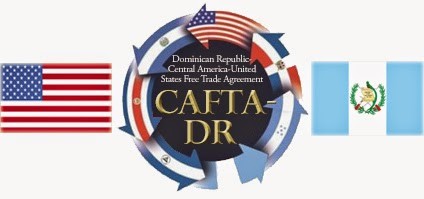
The people of Guatemala caught on to the deceptive nature of a U.S. Trade Agreement with Central America which was marketed as a way to “modernize” them. It also pretends to protect new seed varieties and paints the seed bearers in need of protection as small farmers. It is actually a way for big biotech and seed companies like Monsanto, DuPont, Duwest, Syngenta, etc. to assume power and immunity as owners of their food supply. Guatemala is calling it “Monsanto Law.” It does bear resemblance to the “Monsanto Protection Act” which was a rider slipped into a U.S. financial bill last year, now considered dead.
Big Biotech's promise to feed the world, by squeezing out every other choice against the will of the impoverished people intended as the target – is beyond cruel and exploitative. It is another way that the U.S. occupies other countries. How else are other people in these countries supposed to view multiple soft-sanctions on food, but as an act of war?
The people of Guatemala caught on to the deceptive nature of a U.S. Trade Agreement with Central America which was marketed as a way to “modernize” them. It also pretends to protect new seed varieties and paints the seed bearers in need of protection as small farmers. It is actually a way for big biotech and seed companies like Monsanto, DuPont, Duwest, Syngenta, etc. to assume power and immunity as owners of their food supply.
From TechDirt:
The new law was brought in as part of the process of complying with the 2005 CAFTA-DR free trade agreement between Costa Rica, El Salvador, Guatemala, Honduras, Nicaragua, the Dominican Republic and the US. Under its terms, signatories are obliged to sign up to the International Convention for the Protection of New Plant Varieties — exactly the same one that was being foisted on Africa last year. However, as bilaterals.org reports, despite that obligation, there is mounting resistance to handing over the country’s seed sovereignty in this way:
The growing opposition to the “Monsanto Law” comes from diverse sectors of civil society such as indigenous organizations, environmental groups, scientists, artists and members of Congress.
On 10 June, the Congress of Guatemala approved Decree 19-2014
or the “Law for the Protection of New Plant Varieties” which led to an outpouring of criticism from various sectors of civil society.
This law, published on 26 June, protects the intellectual property of plant breeders deemed to have “created” or “discovered” new plant varieties, or genetically modified existing ones.
This way, the beneficiaries of the law — “breeders”, which are typically companies producing transgenic seeds like the transnational corporation Monsanto — obtain property rights over the use of such varieties, in the form of plants or seeds.
If that isn't enough, according to the Rural Studies Collective (Cer-Ixim) the implications of this law are harsh and dire (but not too surprising, considering Monsanto's treatment of farmers in the U.S.).
It will be illegal and punishable by imprisonment if farmers do the following:
- Possess or exchange protected seed varieties without authorization.
- Possess the harvest or save seeds for future use.
- Use the product of “varieties essentially derived from the protected variety.” Meaning even unintentionally via contamination.
Do you realize that biotech seed companies own their spreading damage through patents and protection under laws such as these? Their damage to the farmer and inevitable contamination becomes their property, and then some, with litigation. Add to that the imprisonment of the afflicted party and they don’t just own all the seed and food, but the farmers too.
Guatemalan groups are seeing the full implications of this trade and reject it for its unconstitutionality, a loss of biodiversity for foreign interests and the lack of consent.
Please Read this Article at NaturalBlaze.com




Leave a Reply